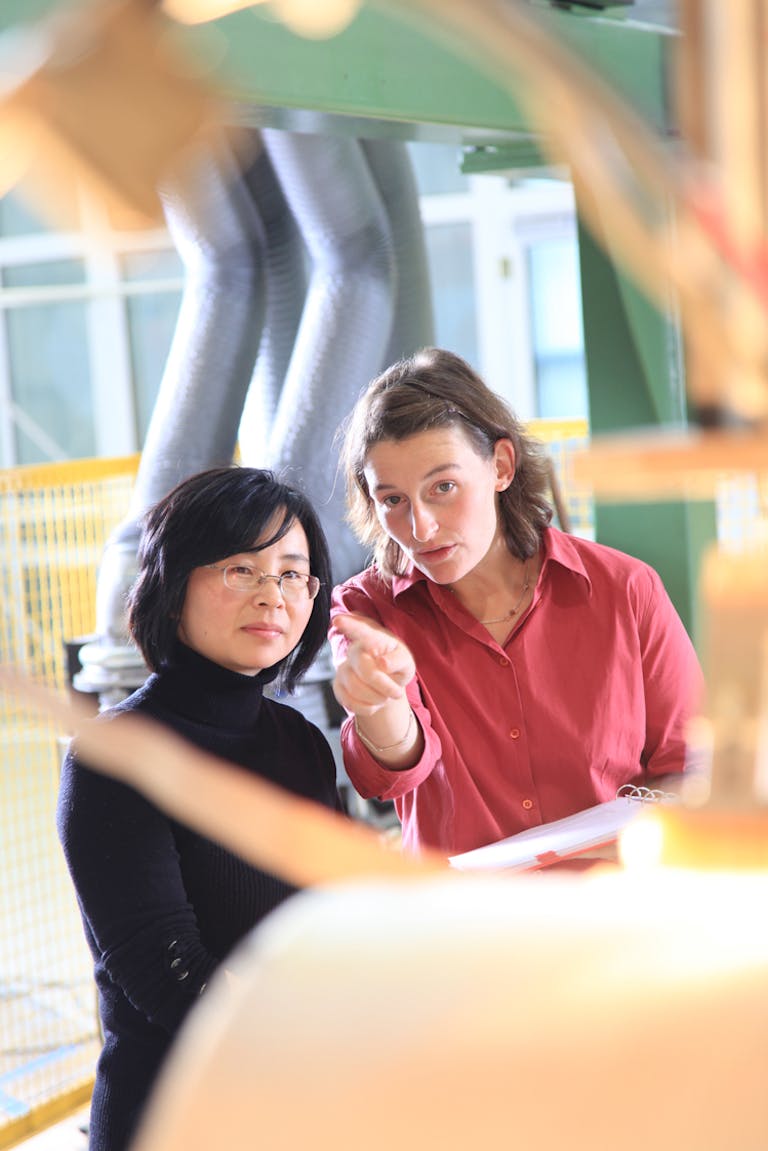Why ePIcenter? - Bremer Institut für Produktion und Logistik (BIBA)


The ”BIBA - Bremer Institut für Produktion und Logistik” is a research institute focused on engineering science. It was founded in 1981 as one of the first affiliated institutes of the University of Bremen and counts as one of the largest research facilities in the federal state of Bremen. It consists of two divisions: “Intelligent Production and Logistics Systems” (IPS), headed by Prof. Dr.-Ing. Michael Freitag and “ICT applications for Production” (IKAP), headed by Prof. Dr.-Ing. Klaus-Dieter Thoben. Based on distinct fundamental research, BIBA carries out applied and contract research, both on national and international level, in the areas of production and logistics for relevant industries like logistics, automotive, aviation and wind energy.
Furthermore, BIBA is involved in a University of Bremen-based Collaborative Research Center, funded by the German Research Foundation, as well as in the Bremen Research Cluster for Dynamics in Logistics (LogDynamics) and the International Graduate School for Dynamics in Logistics. With the LogDynamics Lab, the institute operates a demonstration and application centre for innovative mobile technologies in logistics.
High performing co-operations between independent companies with the aim to develop and to realise customised products are an important success factor for the competitiveness of the European industry. Due to immense political changes and global markets, new ways of co-operations, so called enterprise networks, can be seen in addition to the traditional supply chains. These enterprise networks are often formed to realise a single customers’ order and play an important role during the conceptual phase (product design) as well as during the realisation phase (production).
The research unit IKAP prepares, develops and realises methods and tools to support co-operative, inter-organisational enterprise and logistics networks. The research concentrates on efficient and effective collaborative design and production processes by applying innovative information and communication technologies (ICT). As focus can be seen the collaborative acting of enterprises during distributed design and production processes as well as during the late processes of the product life cycle such as the usage phase or the recycling phase.
The research results are integrated in the academic education of the next generation engineers (mechanical engineering, industrial management, systems engineering) at the University of Bremen. Another application field of the research results are industrial projects where innovative approaches are transferred to practical problems.
BIBA’s role in ePIcenter
International trade and local supply for production sites is getting more and more complex, and therefore harder to manage. New transport technologies like Hyperloop have the potential to reduce environmental impacts such as green house gas emissions and noise and are an alternative to traditional supply via trucks or trains. The ePIcenter project aims to create an interoperable toolset of software tools, services and methodologies that can be deployed by a wide range of public and transport industry stakeholders to address the many challenges connected with new transport concepts and technologies.
BIBA leads the task to define the Freight Network Configuration Impact Comparator Toolset. Its objective is to demonstrate the impacts of implementing new technologies such as Hyperloop and TPods in logistics scenarios by introducing new transport modes. This includes the evaluation of costs and benefits. Costs are related to build and maintain the infrastructure and the operation of the logistics network. Benefits are related to effectiveness and efficiency of the transportation modes for the involved actors. Beside the costs and benefits of the directly involved actors a wider scope is necessary to assess the impact in various areas for the society. This includes the assessment of external costs (e.g. caused by actions to be taken by governments and other players to compensate for unwanted effects) and other benefits like less traffic, less environmental impacts, and less noise.
Additionally, BIBA provides Quality Management rules and measures for the ePIcenter project. This includes the definition of procedures and active supervision of the creation of project results such as deliverables.
Why ePIcenter is important for BIBA

BIBA has a long tradition in developing and applying simulation in production and logistics to support planning and evaluation of various concepts and strategies. Therefore, the application and further development of such methods and tools play an important role in progressing in research and supporting local, national and international industry.
ePIcenter results such as the Freight Network Configuration Impact Comparator Toolset are integrated into BIBA’s portfolio of methods and tools which are used to demonstrate benefits of new technology and approaches. Results are used in training courses for higher education, especially innovation management and product design. BIBA offers many different types of training courses within their university education program. These range from traditional lectures to so called hands-on labs.
Results achieved by the research work performed by BIBA within the ePIcenter project are published in the form of conference contributions and scientific papers for journals. Master and doctoral thesis with ePIcenter related content are planned.
